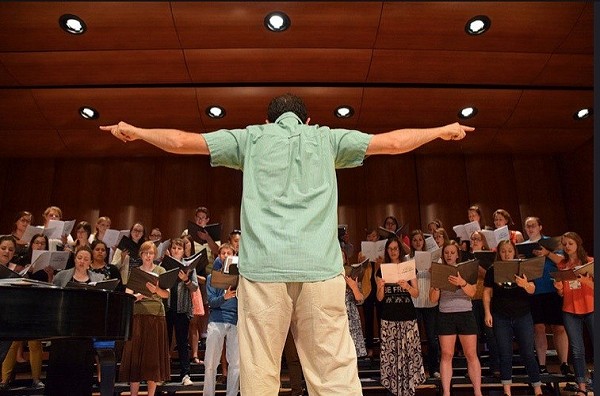WISCONSIN'S LEADER IN EVENING & ONLINE EDUCATION
The Kodály Summer Graduate Music Program is designed for elementary, secondary, and independent music teachers who are seeking to grow their pedagogical, personal musicianship, and research skills. The program faculty are leaders in the field of music education and provide an experience that is joyful, supportive, and immensely meaningful.
The Kodály Summer Graduate Music program is efficient and is designed to complement the busy schedules of working music educators. Music educators can earn their Master of Music in Music Education – Kodály Emphasis degree in four summers, including an intensive two-week summer residency each summer, with limited online coursework throughout the academic year. Within the 34-credit program, students will also earn an OAKE endorsed Kodály Certificate. Most program participants work full or part-time during the academic year and immediately apply what they learn in the program to their teaching.
Graduate students also have the option to complete their OAKE endorsed Kodály Certificate in just three summers. This program takes place exclusively during a two-week summer residency for three summers and is 20 credits. Scholarships are available for graduate students in the Master of Music in Music Education – Kodály Emphasis degree and OAKE endorsed Kodály Certificate programs.
A variety of workshop courses are also offered without graduate credit and at a reduced rate.
